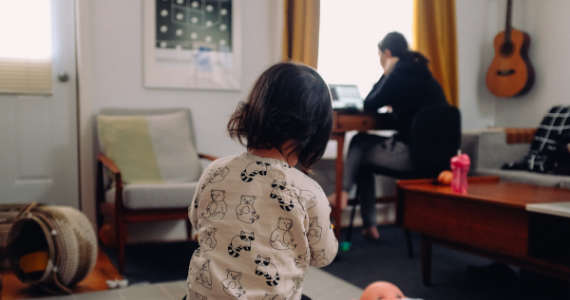Liberation… The global remote working experiment was supposed to liberate us from the stresses and time-wasting of our commutes, from the numerous physical interruptions that plague our productivity, and above all, from the proverbial chains of our desks that prevent us from designing work days that best suit us, writes Steve Glaveski.
But despite all of its shortcomings, the central office does offer myriad benefits — one of which is becoming more obvious by the day.
Boundaries and Mental Associations
The ritual of commuting to work — while giving us larger waistlines and greater susceptibility to depression — serves as a proverbial ‘on’ switch. Similarly, when we leave our central high-rise offices — it serves as an ‘off’ switch.
We mentally associate the environment of the office with work, and so when we’re there, our brains click into work-mode. When we’re not, they click into rest-mode.
This is why Harvard researchers find that keeping computers, TVs, and work materials out of the bedroom will strengthen the mental association between your bedroom and sleep, and help you get a better night’s rest.
When we’re working from home every day, the association between home and rest becomes compromised as we begin to strengthen our association of home with work.
We’re always at the office.
As such, we may find ourselves strengthening some bad habits we may have already had previously:
-
Checking email at all hours of the day
-
Taking calls at all hours of the day
-
And of course, doing actual work at all hours of the day
These things come with additional costs.
The ‘always on’ mindset and the after-hours checking of email and working can make us sick, resulting in stress, burnout and depression.
Not only that, but if we’re working all day and sporadically checking email and taking calls all day, then we’re not really present with our family or with ourselves. It means we’re not cultivating time for reflection, for conversation, for self-care, at a time when perhaps we need to be doing so more than ever before — if not for ourselves, then at least for the people we care about.
To counter this, it’s critical that we set new boundaries.
Setting New Boundaries
Physical Boundaries
To break unhelpful mental associations, create a separate space for work as best you can.
If you have the room, don’t work from the kitchen table, the living room or the bedroom. If you have a study, use it. If you have a spare bedroom, use it. If you an unused nook in a corner somewhere, use it.
And if you don’t have the luxury of surplus space?
Introducing rituals to your day can also serve as an ‘on’ and ‘off’ switch for people that don’t have the space, as well as for those that do.
These rituals might include:
-
Putting on some pants: A study published by Wiley found that participants who worked from home reported feeling more authoritative, trustworthy, and competent when wearing business attire
-
Going for a 15 to 30 minute morning walk and getting some sunlight before sitting down at your desk. This can mimic the feeling of commuting to work.
-
Getting in a morning workout followed by say, a cold shower, to change your physiological state
-
Setting your workstation up (this requires you to clean up your new desk the day before instead of just leaving your laptop and countless documents all over the kitchen table)
Team Boundaries
Hopefully, we’re diligent and intentional leaders or are working for one, and our boundaries are respected. If not, it’s imperative that we clearly communicate to our colleagues, as best we can, what our time boundaries are.
-
When are we available for calls?
-
When should we expected to be online?
-
When have we hit the off switch and are now in rest mode or family mode?
If we don’t set boundaries, others will set them for us.
Source: Flying Solo December 2021
This article by Steve Glaveski is reproduced with the permission of Flying Solo – Australia’s micro business community. Find out more and join over 100K others https://www.flyingsolo.com.au/join.
Important: This provides general information and hasn’t taken your circumstances into account. It’s important to consider your particular circumstances before deciding what’s right for you. Any information provided by the author detailed above is separate and external to our business and our Licensee. Neither our business, nor our Licensee take any responsibility for any action or any service provided by the author. Any links have been provided with permission for information purposes only and will take you to external websites, which are not connected to our company in any way. Note: Our company does not endorse and is not responsible for the accuracy of the contents/information contained within the linked site(s) ac www.flyingsolo.com.au




